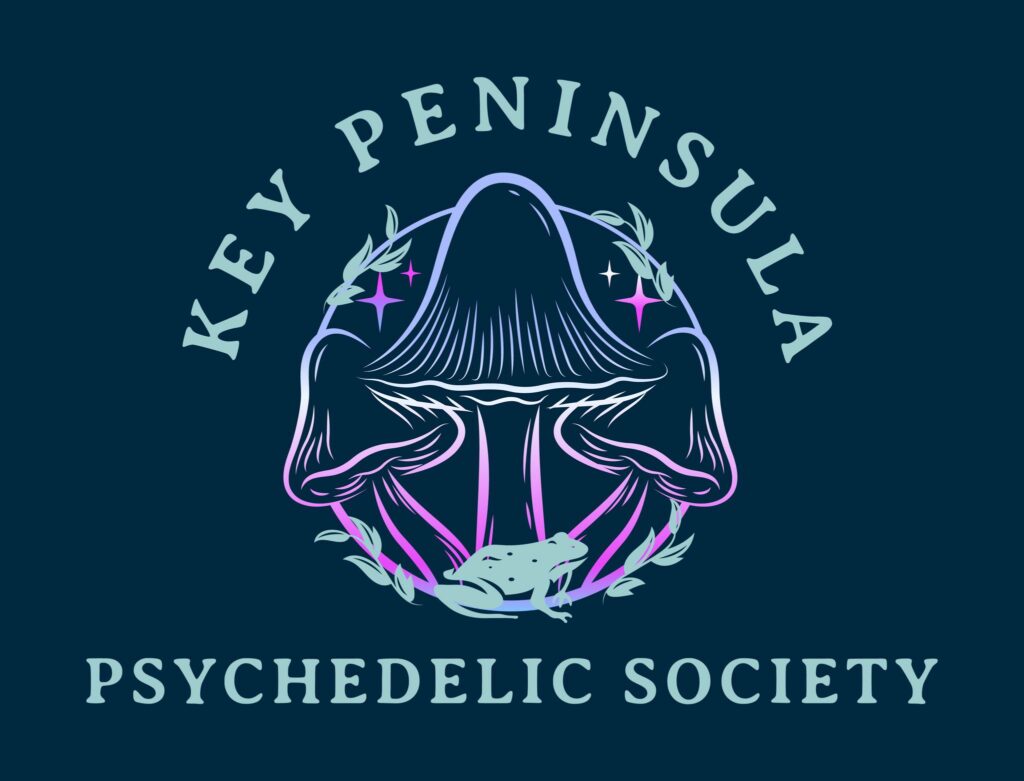Community Health & Wellness
Psychedelic Society Resource Fair promotes possible health benefits of psilocybin, other hallucinogenics
Sarah Rasor’s use of psychedelics began during the pandemic. Facing myriad chronic illnesses, she started microdosing psilocybin.
Health & Wellness Sponsor
Health and Wellness stories are made possible in part by Virginia Mason Franciscan Health, a proud sponsor of Gig Harbor Now.
The experience was transformative.
“I still have to go to the hospital, because my body is failing, but I am able to work through things,” she says. “I am able to live a life that I wasn’t supposed to have. I’m better than I was ever supposed to be.”
Peninsula Psychedelic Society
Hoping to tell more people about psychedelics – and how they changed her life – Rasor co-founded the Peninsula Psychedelic Society, a community group that educates about the use and potential benefits of hallucinogenic substances.
Rasor, the society’s president, said their initial meeting at the Key Peninsula Library drew 45 people, blowing past any expectations they had. Since then they have held a monthly integration circle, where volunteers lead a community discussion on psychedelic experiences, and a workshop series focused on teaching people about psychedelics.
The society is hosting its first ever resource fair at the Key Peninsula Civic Center, 17010 South Vaughn Road NW, from 9 a.m. to noon Saturday, July 19. A panel discussion on safety and risk reduction in psychedelic use headlines the event.
Rasor says the group provides a comfortable space to learn and ask questions about psychedelics. The response has been overwhelmingly positive.
“You wonder, with the stigma and with what we’re doing, are people gonna receive us well?” she asked. “It’s been amazing. I’m floored.”

Hallucinogenics remain illegal
Yet even as interest in psychedelics has taken off, both on the Key Peninsula and other communities in Washington, use of psilocybin (or mushrooms) and other hallucinogenic drugs remain illegal under federal and state law.
Washington legislators directed the state Health Care Authority to establish a Psilocybin Task Force in 2023 to study possible structures for clinical use. Efforts to expand access after that though have faltered.
The Clinical and Supervised Access to Psilocybin Act, introduced by State Sen. Jesse Salmon, D-Shoreline, failed to make it out of committee during this year’s legislative session.
Public opinion on psychedelics, though, appears to be shifting. Neighboring Oregon became the first state to decriminalize psilocybin in 2020 and now allows its use in supervised, licensed facilities.
Some local jurisdictions in Washington, including Port Townsend, Seattle, Tacoma and Jefferson County, have voted to decriminalize psychedelics or make them a lower priority for law enforcement.
The federal Drug Enforcement Agency classifies psilocybin and other psychedelics as Schedule I drugs, a designation reserved for restricted substances with no currently acceptable uses. That makes them difficult to research.
What studies have been produced show evidence that psychedelics can be an efficient treatment for depression, post-traumatic stress disorder, addiction and end-of-life care.
Alternative treatment
Rasor’s journey to psychedelics began around 2004, after a chronic illness upended her life. Random and uncontrollable bouts of vomiting started, she said, seemingly out of nowhere. Doctors diagnosed her with cyclic vomiting syndrome.
The illness was debilitating, ending her career in the field as an EMT. She continued to work for several more years, teaching other EMTs, but eventually became too sick for that. It felt, she said, that she had been kicked out of society.
After six or seven years trying different medications and diets, Rasor felt little relief. That is when she turned to cannabis.
Although legal medicinally, maijuana was a year from being permitted recreationally. The stigma gave Rasor pause. She worried how it would impact her relationships or future job prospects. Few doctors would prescribe it, she said, and it seemed like little reliable information was available.
Unable to work or do much of anything and battling constant exhaustion, dehydration and nausea, she asked herself what she had to lose.
“I was in a wheelchair,” she said, “with not much of a prognosis for long-term life.”
Advocating for access
Rasor credits cannabis with relief from her nausea and allowing her to eat again. She felt pain relief too, and became less anxious about frequent doctor visits. “I found cannabis and that allowed me to be able to kind of have a life again.”
It did not solve all of her issues. After spending over a year in the hospital and taking various medications for her ailments, she experienced withdrawals. Microdosing psychedelics helped her come off those medications and address some past traumas, she said, allowing her to rebuild a “semblance of a normal life.”
Her impetus for forming the Key Peninsula Psychedelic Society, is about advocating for others to have that same experience.
“For a long time I’ve been working really hard to advocate for access,” she said. “For other people to be able to survive the same way that I have.”

